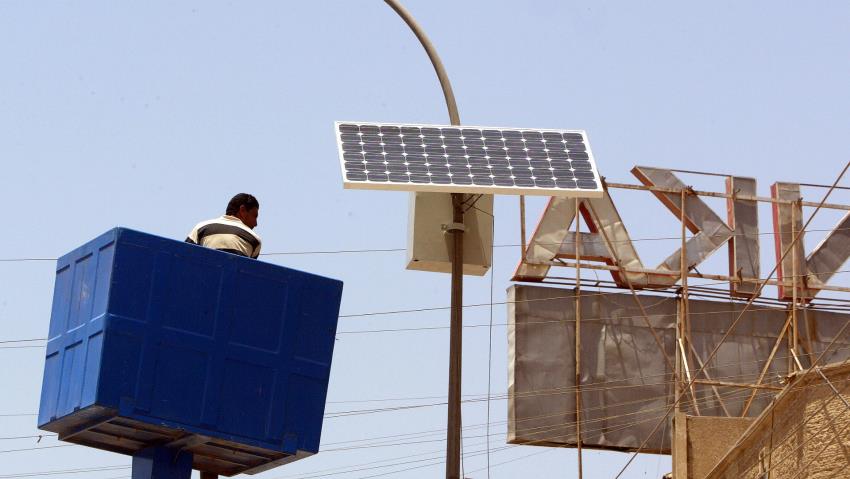EU Observer (12 June 2019)
Europe should agree to open accession talks with Albania and North Macedonia this month to "ensure the credibility of EU enlargement policy", 14 member states have said.
Albanian and North Macedonian leaders said the same on Tuesday (11 June).
But the pressure might not be enough to get sceptics, including France and Germany, to budge.
The 14 countries' foreign ministers spoke out in a joint statement ahead of EU talks at a so-called General Affairs Council (GAC) next week, in which all 28 member states must agree to take the decision.
"The launch of accession talks ... will serve as an important motivational factor for the whole region," they said.
"Starting the negotiations in June 2019 will also contribute to strengthening countries' resilience to external, detrimental interests of other players and ensure that EU continues are the leading player for a positive regional transformation," they added, in an allusion to Russian competition for influence in the Western Balkans.
The group-of-14 included all the former Iron Curtain member states which joined the EU after 2004, except Romania, which opted out because it is meant to be neutral as the current holder of the EU presidency.
Austria and Italy, which neighbour the Balkans region, as well as Malta, also signed up.
The EU's most powerful members, France and Germany, and two other enlargement sceptics, Denmark and the Netherlands, stayed out, however.
For his part, Albania's prime minister Edi Rama also urged the EU to move ahead on a visit to Brussels the same day.
North Macedonia's prime minister Zoran Zaev said the same in Prague and the country's president is set to repeat the appeal in Brussels on Wednesday.
Rama used an anatomical metaphor, saying Balkan states were "an organ" of the EU "body" that surrounds them.
"Europe has to make a choice what to do with this organ - to let it bleed out and create problems for itself [the EU] or to be part of the body," he said.
"Europe should act geo-strategically and geopolitically," he added, in another allusion to Russia.
'Tragic region'
The European Commission president, speaking alongside Rama, said he stood by his officials' recommendation, issued last week, to open the talks.
Picking up on Rama's bloody imagery, he said the EU had "no right to play games" in the "tragic region", which endured a series of wars just two decades ago.
"We have to make it very crystal clear that the moment has come to open negotiations," Juncker said.
North Macedonia's Zaev said in Prague also on Tuesday that his country had "overcome all [negative] stereotypes and disagreements" due to its historic name deal with Greece earlier this year.
"European politicians now have to keep their word," Czech leader Andrei Babis added.
"It would be wrong if the Western Balkans did not belong to Europe and potentially Schengen [the EU's free-travel area]," Babis said.
The appeals came after the German parliament, last Thursday, approved North Macedonia's entry into Nato, but put off a decision on the EU talks until after its summer recess.
France, Denmark, and the Netherlands already blocked the opening of the EU talks last year due to concerns on corruption, organised crime, and lack of rule of law.
And Juncker, on Tuesday, admitted that next week's GAC was unlikely to unlock the process.
It was not "mission impossible" to change minds in France and Germany, he noted.
But "I'm not focusing on June because there are parliaments which have to approve, they are not in session in June, so it could be later," he also said.
Waiting room
The EU has already opened accession talks with Montenegro and Serbia after taking in Croatia and Slovenia in recent years.
Bosnia and Kosovo, which is not recognised by five EU states or Serbia, are still waiting for the green light.
But Juncker warned that unless Kosovo and Serbia agreed to normalise relations in EU-brokered talks, then neither of them would get in.
"We don't want to import instability into the EU, we want to export stability to these countries, or whatever you call them," he said on Tuesday, in a nod to the Kosovo non-recognition problem.
https://euobserver.com/enlargement/145128
No comments yet.
- ARMENIA’S FM TO DEPART FOR BRUSSELS The Caucasus and Turkish-Armenian Relations 12.06.2019
- ARMENIA STANDS TO BENEFIT FROM EURASIAN ECONOMIC UNION, IRAN TRADE DEAL The Caucasus and Turkish-Armenian Relations 12.06.2019
- ENF PROMISES 'NEW' FAR-RIGHT GROUP Europe - EU 12.06.2019
-
 REPLACING OIL WELLS WITH SOLAR PANELS IN IRAQ
Iraq
12.06.2019
REPLACING OIL WELLS WITH SOLAR PANELS IN IRAQ
Iraq
12.06.2019
- EU REPRESENTATIVE IN ARMENIA: STARTUPS DEVELOPMENT REQUIRES FUNDING, KNOWLEDGE The Caucasus and Turkish-Armenian Relations 12.06.2019
-
25.01.2016
THE ARMENIAN QUESTION - BASIC KNOWLEDGE AND DOCUMENTATION -
12.06.2024
THE TRUTH WILL OUT -
27.03.2023
RADİKAL ERMENİ UNSURLARCA GERÇEKLEŞTİRİLEN MEZALİMLER VE VANDALİZM -
17.03.2023
PATRIOTISM PERVERTED -
23.02.2023
MEN ARE LIKE THAT -
03.02.2023
BAKÜ-TİFLİS-CEYHAN BORU HATTININ YAŞANAN TARİHİ -
16.12.2022
INTERNATIONAL SCHOLARS ON THE EVENTS OF 1915 -
07.12.2022
FAKE PHOTOS AND THE ARMENIAN PROPAGANDA -
07.12.2022
ERMENİ PROPAGANDASI VE SAHTE RESİMLER -
01.01.2022
A Letter From Japan - Strategically Mum: The Silence of the Armenians -
01.01.2022
Japonya'dan Bir Mektup - Stratejik Suskunluk: Ermenilerin Sessizliği -
03.06.2020
Anastas Mikoyan: Confessions of an Armenian Bolshevik -
08.04.2020
Sovyet Sonrası Ukrayna’da Devlet, Toplum ve Siyaset - Değişen Dinamikler, Dönüşen Kimlikler -
12.06.2018
Ermeni Sorunuyla İlgili İngiliz Belgeleri (1912-1923) - British Documents on Armenian Question (1912-1923) -
02.12.2016
Turkish-Russian Academics: A Historical Study on the Caucasus -
01.07.2016
Gürcistan'daki Müslüman Topluluklar: Azınlık Hakları, Kimlik, Siyaset -
10.03.2016
Armenian Diaspora: Diaspora, State and the Imagination of the Republic of Armenia -
24.01.2016
ERMENİ SORUNU - TEMEL BİLGİ VE BELGELER (2. BASKI)
-
AVİM Conference Hall 24.01.2023
CONFERENCE TITLED “HUNGARY’S PERSPECTIVES ON THE TURKIC WORLD"









